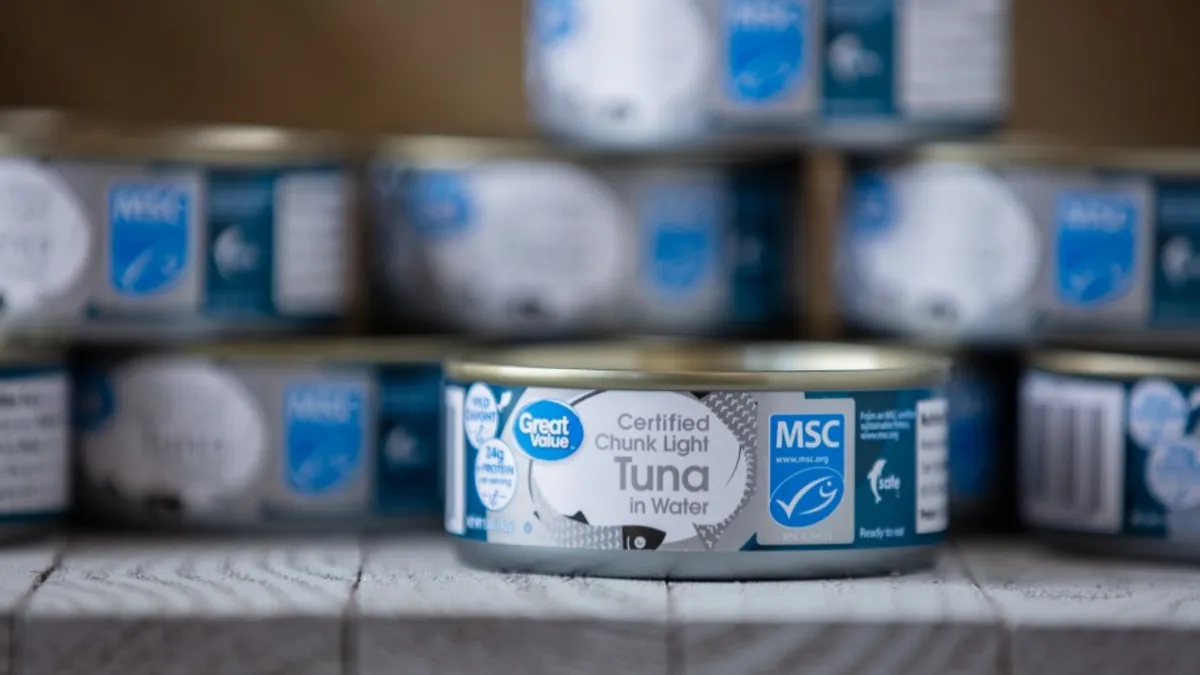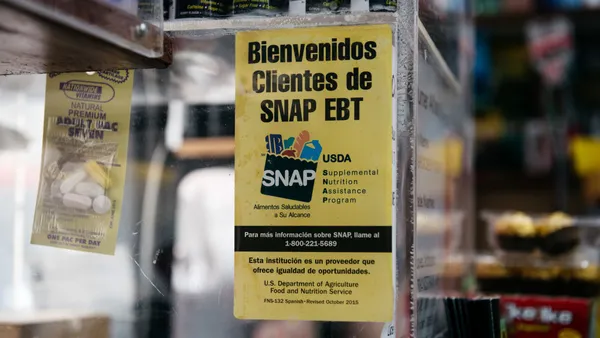Dive Brief:
- Walmart will begin more sustainable sourcing of its private label Great Value canned tuna this July, according to a company press release. The products will be available in U.S. stores.
- The tuna will be sourced as either Marine Stewardship Council-certified, which is based on supplier reports, or from Fishery Improvement Projects, which are organizations actively working toward certification. The company has asked its suppliers to report their progress using the Seafood Metrics System, which is managed by the Sustainable Fisheries partnership.
- Walmart said it has a role to play in accelerating more sustainable fishing practices. While its efforts will begin with its Great Value brand, the company plans to sustainably source all of its shelf-stable tuna by 2025.
Dive Insight:
Though its commitment to responsibly sourced tuna is new, Walmart has been active in pursuing sustainable seafood since 2006, when it first announced plans to source seafood according to Marine Stewardship Council (MSC) standards.
Additionally, since 2015, Walmart has participated in the Seafood Task Force, an international initiative that seeks to better track seafood and address forced labor and illegal fishing in the Thai seafood supply chain. According to the company’s 2019 annual report, nearly 100% of its seafood is sourced according to its sustainable seafood policy.
In a statement, Walmart’s buyer for shelf-stable tuna, Jessica Baldini, said it’s a complex process to find affordable, high-quality tuna that meets sustainable requirements.
"It takes alignment and collaboration with internal leadership and external stakeholders – so there are a lot of people who have to be on board with the idea that ‘sustainability is what Walmart stands for,'" Baldini said.
Greenpeace USA ranks Walmart as "mediocre" in its seafood sustainability efforts, at 55%. The company scores higher for having sustainable seafood policies in place, but receives poor marks for its transparency and for selling some red-listed species of fish.
Although Walmart is basing its sustainability efforts on existing seafood standards and certifications through organizations like MSC, some voices have criticized such standards. A recent academic article in Hakai Magazine calls into question the MSC and its branding, claiming that certification does not necessarily mean seafood is caught sustainably.
Consumers have said that sustainability matters when it comes to seafood. According to MSC, 72% of consumers want seafood sustainability claims to be independently verified and the same number agree sustainable seafood will help save the oceans. FMI’s Power of Seafood Report says 15% of consumers decide whether or not to buy seafood based on sustainability.













